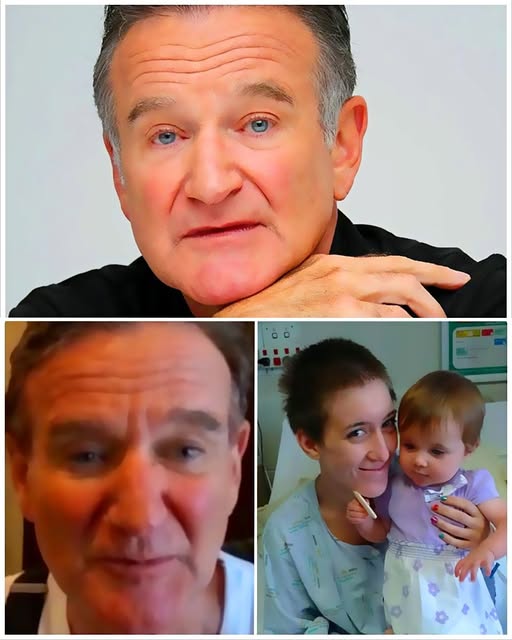…is not someone who does not feel fear or pain, it is someone who sets fear and paid aside to do regardless of them what they feel best at the time.

A few weeks before he left this world, Robin Williams sat down to film a short video for a little girl he had never met. The girl, terminally ill and in her final stages of life, had parents who reached out through a mutual connection hoping for a small gesture. What they received was a burst of life: Robin spoke in silly voices, slipped between accents with ease, blew kisses into the camera, and finished with a soft, smiling line, “Keep laughing, okay? Laughter is the best medicine.”
Her parents said she watched it every single day. It made her laugh when her body hurt too much to move. It gave her a reason to smile in the quiet, painful hours of hospital care. What they didn’t realize was that Robin, even while filming that message, was in the midst of his own unraveling. The man who brought so much joy to others was fighting a storm inside his mind.
He had recently received a diagnosis that explained none of what he was truly feeling. Doctors initially believed it was Parkinson’s disease, but the true culprit, Lewy body dementia, remained undetected until after he was gone. It was an aggressive condition that attacked not just his memory, but his grip on reality. He suffered from paranoia, insomnia, panic attacks, and moments of confusion so intense that he once forgot his own lines during a shoot, something that had never happened in his long career.
But in that message, recorded quietly at home, none of that pain showed. Robin radiated warmth. He looked straight into the camera, into the heart of a child who needed comfort, and gave everything he had. It wasn’t scripted. It wasn’t part of a campaign. It was a deeply personal act of love.
Throughout his life, Robin had a habit of showing up for people when no one was watching. He spent time with sick children, visited hospitals unannounced, and supported causes without publicity. His work with organizations like “St. Jude Children’s Research Hospital” and “Comic Relief” wasn’t about visibility. It was about showing up in real moments for real people.
That little girl’s parents only came to understand the full weight of the message after the news broke. They were heartbroken, but also grateful. In his final weeks, their daughter had received something irreplaceable, a moment of pure happiness from the very person who, unknown to them, was navigating his own private despair.
Susan Schneider Williams later revealed that Robin knew something was deeply wrong with his brain. He would say things like, “I feel like I’m going crazy,” and, “I just want to reboot my mind.” She watched him try to hold himself together, even as confusion and fear crept into the corners of his personality.
And still, he gave that video everything. A friend who later viewed the clip said it best, “It was Robin being Robin. He was hurting, but when the moment came to make someone else laugh, he just flipped the switch. Like he always did.”
For the family, that message became more than a keepsake. It became a lifeline. It was proof that even in unimaginable pain, people like Robin Williams chose love. Chose to give. Chose laughter over silence.
In one of his final personal acts, he reminded the world that true kindness doesn’t need strength, it only needs sincerity and heart.
Even when his mind was fading, his soul knew exactly what to do: find someone who was hurting, and make them laugh.
